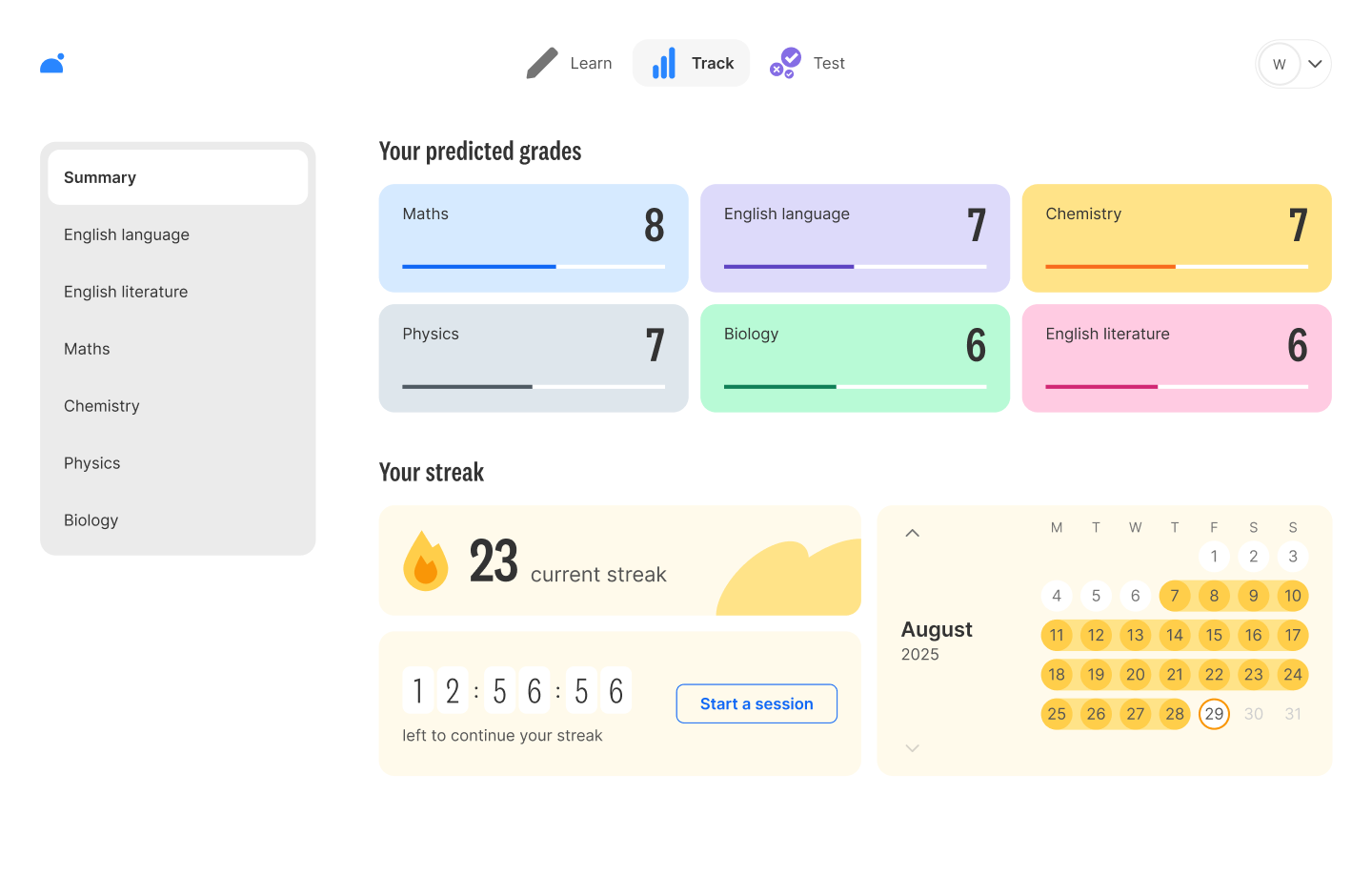GCSE study habits: how to build good routines from September
Starting a new school year is the perfect opportunity to reset, refocus, and build the study habits that will carry students through to GCSE exam success.
For GCSE students, September is the ideal time to lay the groundwork for effective revision before the pressure of mock exams and coursework deadlines ramps up.
In this blog, we’ll break down:
- Why early routines make a difference
- What effective study habits look like
- A step-by-step guide to setting up a strong weekly routine
Why good habits in September matter
Building good study habits early helps students stay on top of revision, without the stress of cramming later in the year. Starting in September gives plenty of time to build confidence, strengthen subject knowledge, and prepare for assessments gradually.
Here’s why it matters:
- Better memory retention - Spaced repetition (revisiting topics over time) helps students remember information for longer.
- Less pressure later – Consistent habits reduce the need for last-minute revision marathons.
- Easier time management - A clear routine improves time management, making it easier to balance school, revision, rest, and hobbies.
Download your free GCSE revision planner
Less stress, more success! Get your free GCSE revision planner and our handy guide to effective revision today.
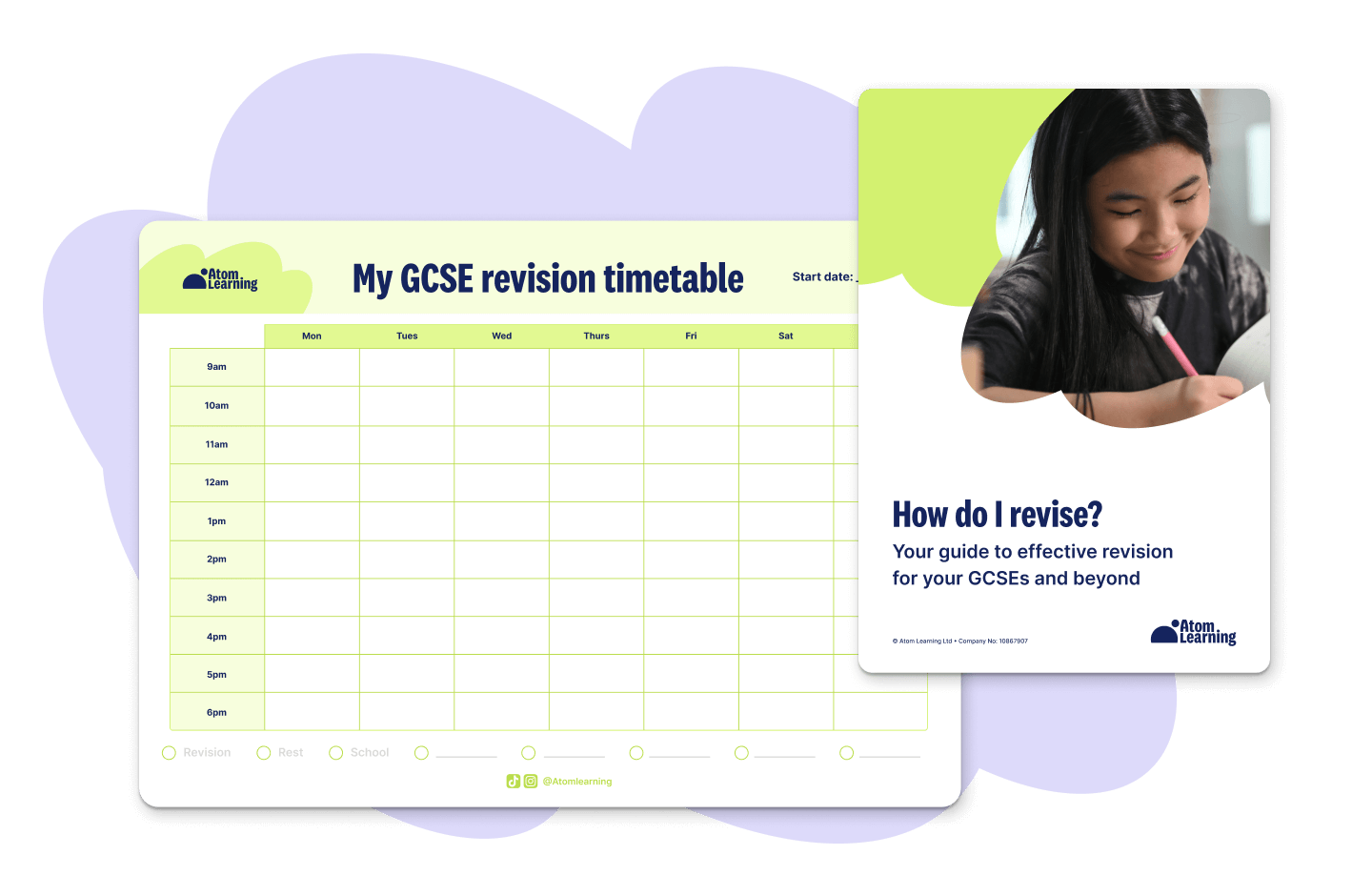
What a strong GCSE study routine looks like
A good routine doesn’t mean revising for hours every evening. The most effective study plans are balanced, realistic and focused, supporting subject coverage and healthy study habits.
Here’s what they typically include:
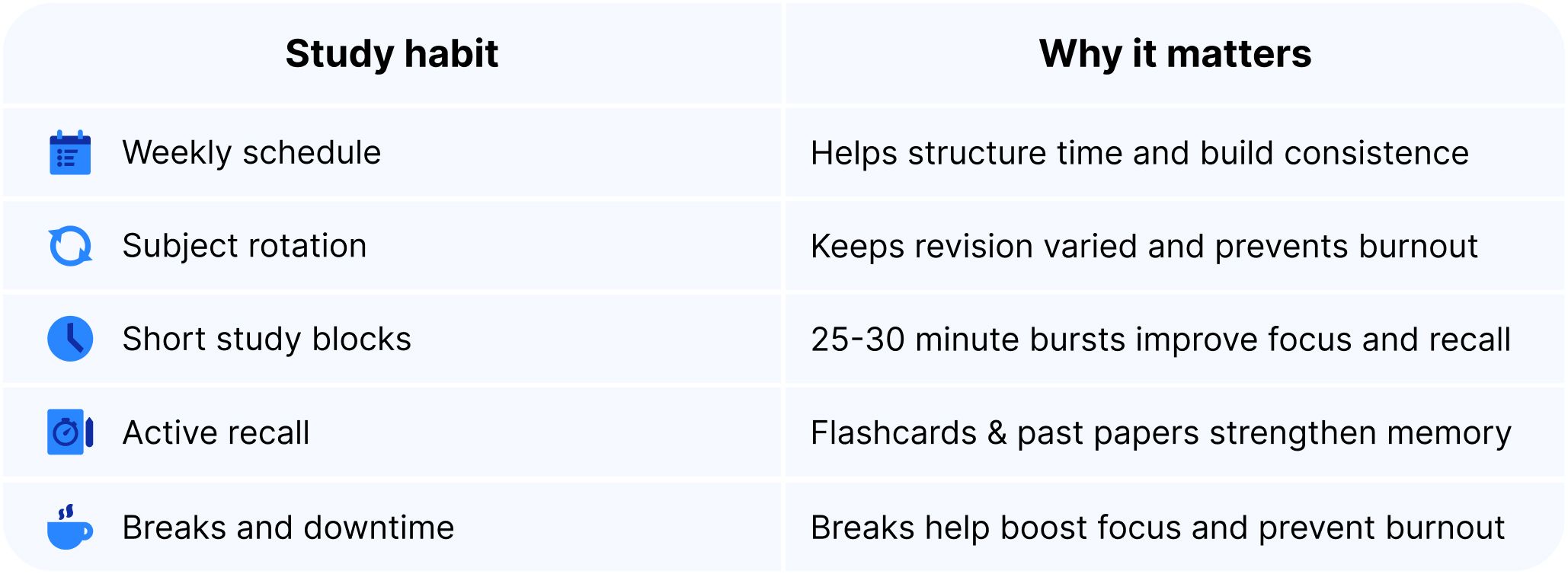
Example (for students and parents to plan together):
- Monday – 30 mins English + 30 mins Science
- Tuesday – 25 mins Maths + 25 mins Geography quiz
How to set up a September study routine
Building a strong GCSE study routine doesn’t need to be complicated. September is the ideal time to establish good habits, while the academic year is still settling in.
Here’s a step-by-step guide to creating a manageable and effective routine from the start:
1. Set realistic weekly goals
Start by making a study plan. This plan should show how many revision sessions you can fit into the week. Consider your schoolwork, clubs, and free time.
- Year 10 students might start with 3–4 short sessions per week to build momentum gradually.
- Year 11 students can aim for 5–6 sessions, mixing revision with targeted exam practice.
- Keep sessions short, 25–30 minutes is plenty. It’s about consistency, not cramming.
2. Use a visual planner
A clear weekly timetable is a powerful time management tool that helps students stay organised and accountable. You can update it term by term as the exam get closer. Take a look at our guide to GCSE exam dates to help.
Students can benefit from using a wall planner, digital calendar, or scheduling tool. A visual plan reduces decision fatigue and keeps students on track.
Plot out:
- School hours and homework deadlines
- After-school activities or family commitments
- Study sessions for different subjects
- Time to relax, recharge, and sleep
3. Prioritise tricky subjects
Focusing on weaker subjects early in the year can help build confidence. Take time to reflect on which topics feel more challenging or less enjoyable, and prioritise these while there’s still plenty of time to strengthen your understanding.
Addressing tricky areas now, without the pressure of looming exams, makes future revision more effective and far less stressful.
4. Review progress regularly
No routine is perfect from the start; it’s important to review and refine it as the term progresses.
Every couple of weeks, students (and parents) can ask:
- Is this timetable realistic and sustainable?
- Are some subjects being neglected?
- Am I feeling confident in the topics I’ve covered?
A five-minute Sunday check-in can make a big difference. You might adjust the number of sessions or switch up subjects based on what’s working.
5. Celebrate consistency
Building a habit takes time and effort, especially during a busy school term. Celebrate small wins like sticking to your plan for a week or improving on a quiz score.
- Students can set personal rewards, like time to relax or a treat after a strong revision week.
- Parents can praise effort and routine just as much as results; it helps reinforce the value of consistency.
Every step forward counts! Stay patient, and trust that steady progress will lead to real results.
Common mistakes to avoid
Even with a routine in place, some study habits can get in the way of progress. Watch out for:
- Overloading the week: Studying every night can lead to burnout.
- Passive revision: Once you have learnt the content, highlighting or rereading is less effective than doing mini tests or practice questions.
- Skipping breaks: Downtime is essential for concentration and motivation.
- All-or-nothing thinking: Missing a session isn’t a failure. Just get back on track the next day.
Progress takes time, and developing good study routines early allows for gradual improvement before pressure builds. That’s why there’s real value in building a routine early, in September. It gives time to gradually improve, strengthen understanding, and build confidence before exam season begins.
How parents can support good study habits
Parents play a key role in helping students feel confident and prepared.
Here are a few supportive actions:
- Help to create a calm, distraction-free study space
- Encourage short, focused sessions and regular breaks
- Set weekly goals together (and review them without pressure)
- Ask questions like “What subject are you planning to revise today?”
- Praise consistency and effort, not just top marks
Students are more likely to stay motivated when they feel supported, not micromanaged.
Final thoughts
With the right strategy and support, building strong GCSE study habits from September can make the whole year more manageable. Early routines reduce stress, build confidence, and leave more time for practice when exams get closer.
Focus on steady, consistent progress and remember that every small step adds up to success.
Take control of your GCSE revision
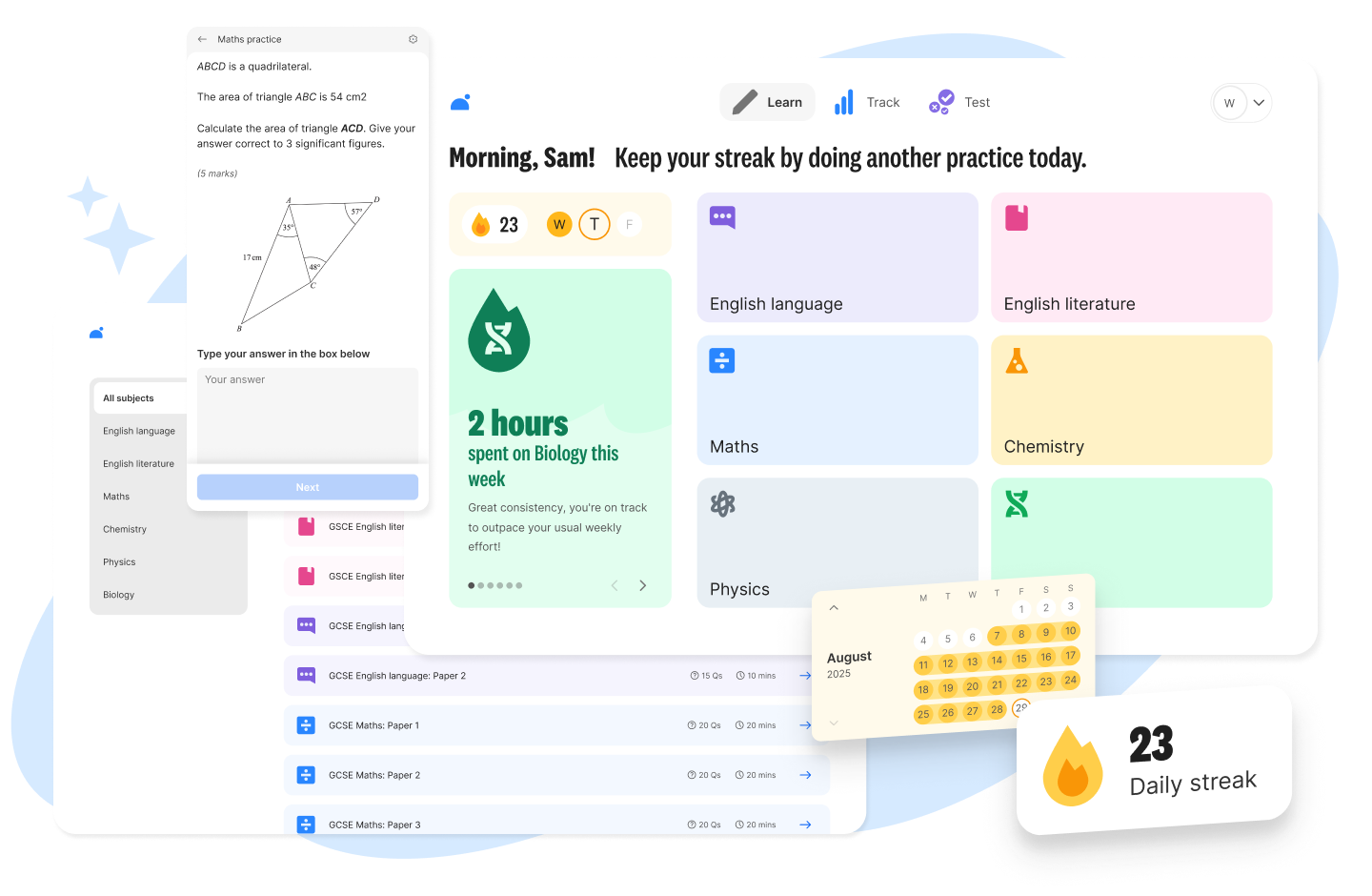
Everything you need for GCSE success, in one place.
Feeling confident about your GCSEs comes from knowing what to revise, how to improve, and where to focus next.
🔮 GCSE practice papers based on our team's 2026 exam predictions
🎓 Guided courses that cover all the topics on your exams
✍️ Instant feedback that tells you where you’ve gained and lost marks
📈 Predicted GCSE grades and topic-by-topic tracking
Create your free account and start making real progress today.
